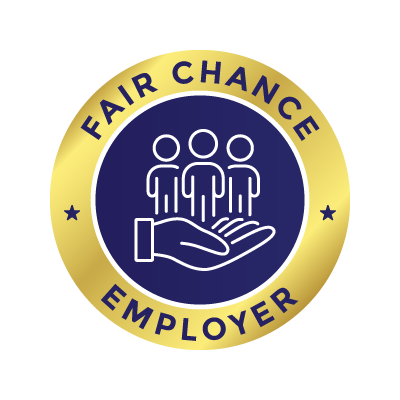While clearing a record sounds good, many people don’t know about the real-world benefits that come with record clearing. One of these benefits is limited access to your record. Once access to a record is limited, there are laws like the Fair Credit Reporting Act (FCRA) that regulate how that information can be used.
Every day, people across the country are judged by what shows up on their background checks. These reports can include criminal records, credit history, and other personal information. But there are laws in place to make sure information being reported is fair, accurate, and not used against you. The FCRA gives you rights and protections, and it works together with different record clearing options to make the process even more effective.
You can use our eligibility tool today to check and see if you are eligible for record clearing and protection under the FCRA.
What Is a Background Check and How Does It Work?
When someone runs a background check, they’re looking at your personal history. This can include things like your criminal record, credit score, and more. Many people don’t realize how much information Consumer Reporting Companies share or how they use it. There is an entire industry built around background checks and related services; before diving into how the FCRA works, we should understand this industry.
What Is a Consumer Reporting Company?
One important group in the background check process is Consumer Reporting Companies. These agencies collect information from public records, including:
- Court documents
- Arrest records
- Credit History
Once they gather the information, Consumer Reporting Companies put it into reports. Reports can be compiled for different reasons. The information in a report depends on the type of background check. Once compiled, these reports are then sold to:
- Employers
- Landlords
- Insurance companies
- Other Institutions
These reports help others decide if they want to hire you, rent to you, or give you other services. Because of this, it’s very important that the information provided by Consumer Reporting Companies is correct and up to date.
Why FCRA Regulated Background Checks Matter
What shows up in your background check can have a big impact on your life. It can affect:
- Whether you get a job
- If you can rent an apartment
- The ease of college applications
- Getting approved for loans or insurance
In fact, according to the Consumer Finance Protection Bureau 70% of landlords perform background checks. Also, 94% of employers use some kind of background screening before offering someone a job. If your background or credit check includes a crime, poor credit, or other problems, you may not have access to these services. You could also have access to worse services than you would get without a negative background check.
While there are different types of background checks, most of them use information from Consumer Reporting Companies (CRCs). Because of this, background checks have a huge impact on people’s lives, as do CRCs. Because CRCs have such a big impact, the government has created laws and regulations around what they can share and how.
[IMAGE OUTLINING HOW INFORMATION MOVES TO/IN BACKGROUND CHECKS]
What Is the Fair Credit Reporting Act (FCRA)?
Now that you understand how background checks work, it’s time to talk about the law that protects you: the Fair Credit Reporting Act, or FCRA. This federal law helps make sure your personal information is handled correctly, kept accurate, and not used against you improperly.
Your Rights Under the FCRA
The FCRA sets clear rules for how Consumer Reporting Companies collect, share, and use your personal data. The government designed these rules to protect your privacy and give you more control over your own information.
While there are a lot of rules and regulations covered under the FCRA, some of these rules are more helpful than others. Among other things, the FCRA:
- Ensures data reported about you is accurate and up to date
- Requires Consumer Reporting Companies to double-check the information they collect
- Gives you the right to see what’s in your report
- Allows you to dispute errors and have them corrected
- Prevents old or irrelevant information from being used
This means that if something on your background check is wrong or outdated, you don’t just have to live with it; you can fix it. It also means that the information used on a background check is regulated. Finally, the FCRA has clear rules about background checks, and these rules protect you from information being wrong or used incorrectly.
Who Enforces the FCRA?
The Fair Credit Reporting Act isn’t just a set of suggestions. It’s backed by powerful federal agencies that make sure the rules are followed.
These agencies include:
- The Consumer Financial Protection Bureau (CFPB)
- The Federal Trade Commission (FTC)
These agencies can step in when something goes wrong. For example, if a Consumer Reporting Company includes false information about you and doesn’t fix it, you can report the issue to the CFPB or FTC. They have the power to hold companies accountable.
It’s also important to know that the FCRA is always evolving. The CFPB is currently undergoing changes that could affect how it applies the FCRA in the future. But the goal remains the same: to protect people like you.
How Record Clearance Affects Background Checks
Record clearing can make a huge difference in your life. When your record is cleared, it’s like getting a fresh start. But how does that work with background checks? And what role does the FCRA play? We’ll answer these questions below.
What Happens to Cleared Records?
When a criminal record is sealed or expunged, it is removed from public access. That means most people, including employers, landlords, and schools, can no longer see it on background checks.
Many states offer record clearance options. Depending on where you live, the process may be called:
- Expungement
- Sealing
- Setting aside a conviction
- Vacating a charge
And more. If you're not sure which options your state offers, we can help. Visit our Utah and Arizona pages or check out the Collateral Consequences Resource Center (CCRC) for more information.
How Does the FCRA Manage Cleared Records?
The FCRA makes it so that cleared records cannot be shared on background checks. Once the courts officially clear a record, Consumer Reporting Companies cannot include it in your future background checks.
However, this depends on the type of record and the state laws. There are a few different levels of clearing and access:
- Consumer Reporting Companies cannot legally include sealed, expunged, or otherwise limited records
- A partially restricted record might still be accessible
- If your record is still public, it may appear unless specific record clearing options are used.
Many types of record clearance limit access in a manner protected by the FCRA. Still, it’s worth checking to make sure the record clearance option you choose has the protections you are looking for. More specific information can be found in state laws or in our record clearing section.
How Long Can Information Stay on Your Report?
The FCRA also sets limits on how long civil cases and arrest records can appear on background checks. For arrest records, the limit is seven years, or until the statute of limitations is up.
So, if you had an arrest more than seven years ago, it usually won’t show up on new background checks.
Still, many people have convictions on their record. This means that for a lot of people, record clearance is the right choice. The FCRA explicitly states that convictions do stay on a background check more than 7 years after it occurs. Because of this, record clearance is important to get rid of your criminal record.
Does FCRA Regulated Record Sealing and Expungement Really Work?
Yes. Several cases across the country have made it clear: Sealed and expunged records should not show up in background checks. These cases come from different states and different years. They all, however, show that the FCRA protects those who have had their record cleared.
There are legal protections in place, and if a Consumer Reporting Companies includes a cleared record by mistake, you have the right to:
- Dispute the error
- Have the record removed
- Report the agency if they don’t fix it
This legal backing gives you real power and a better chance to move forward in life without being held back by your past.
What This Means for You
If your record has been cleared, or you’re considering getting it cleared there’s good news: you are protected. Thanks to the FCRA and other legal safeguards, your cleared record should no longer show up on background checks. That gives you a real chance to move forward.
The Benefits of Clearing Your Record
When your record is cleared, you can:
- Apply for jobs without worrying about your past showing up on background checks.
- Rent an apartment without fear of being denied based on a past record.
- Navigate other institutions that perform background checks
Because the FCRA is a federal law, these protections apply in every state. If your state offers record clearance, the FCRA applies. That means you have the right to a fair chance and protections, no matter where your record is from.
You Don’t Have to Wait
Getting your record cleared can feel abstract or complicated. The FCRA and its protections are a good reminder that the benefits of clearing a record are real and achievable. You can start the record clearing process today, and enjoy the protections offered by the FCRA yourself.
Clearing your record is an important step forward, and it doesn’t have to be hard. We can help you:
- Check your eligibility with our eligibility tool
- Start the record-clearance process today
- Feel confident knowing your history will no longer hold you back
Don’t wait to get your life back on track. With the FCRA on your side, you have the legal support you need to move past your criminal record.



